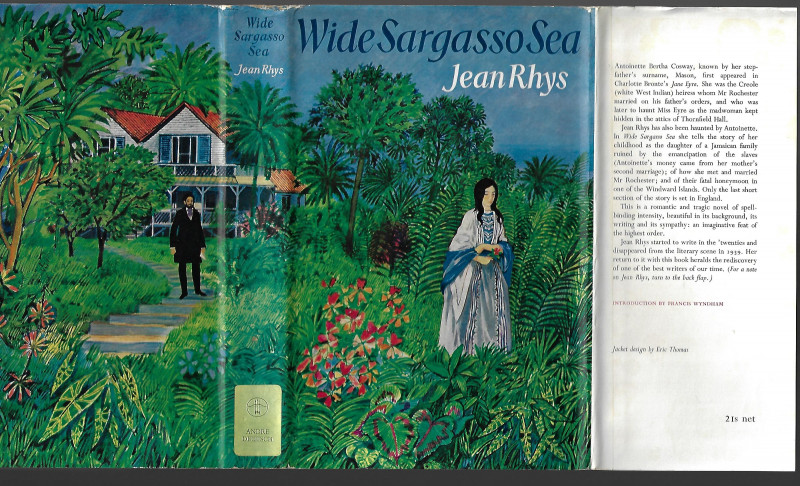

I was more taken with the flapper-ish outfits on display and the way her women wafted romantically around Paris, thinking gloomy thoughts about life before drowning their sorrows with a glass of vin blanc cassis (or two) at the Rotunde or the Dome.

I'll happily admit that when I first read and fell in love with her novels, it probably wasn't due to Rhys's elegant writing, or the tricky questions her narratives pose about the position of women in society. Instead of tending bars in Manchester (a la Riley) they huddle in cafés in London and Paris, nursing glasses of cheap wine as they watch better-heeled Bohemians go by, and wonder where their next sugar daddy and boarding-house payment is going to come from. Unlike Riley's women, Rhys's aren't young they're all ageing beauties. Like Riley (or at least, what I've read about her), they all focus on a few weeks in the lives of marginalised, lone women. These, though they share the slimness of size and the same melancholy, slightly hallucinatory quality of Wide Sargasso Sea, are much more straightforward, semi-autobiographical affairs.

I was thinking more of her four earlier novels. Magnificent as Wide Sargasso Sea is, however, it wasn't the book I was thinking about when I mentioned Rhys in relation to Gwendoline Riley. Living a long way from her Dominican birthplace in a squalid bungalow in a Devonshire village, hounded by her neighbours as a thief and a witch (one woman accused her of impersonating the "dead author, Jean Rhys"), Wide Sargasso Sea plucked Rhys out of poverty and won her long-overdue recognition. By 1966 she was also something of a madwoman in the attic herself, and it could be said that Wide Sargasso Sea rescued not one but two people. Published in 1966 (after a 27-year silence), Rhys saw Wide Sargasso Sea as her rescue job on the madwoman in the attic and a deconstruction of the race and gender relations in Jane Eyre that nobody else seemed to question. Told in odd, dreamlike prose, the narrative drifts through shabby mansions and overgrown gardens, where ferns grow as big as trees and over-scented flowers bloom (like truth) just out of reach, and where, inevitably, a few weeks of bliss tumble into tragedy and madness. A prequel to Jane Eyre, Wide Sargasso Sea recounts the story of the marriage and honeymoon of Rochester and his first wife, Bertha. Her last novel, Wide Sargasso Sea, is her best-known.


 0 kommentar(er)
0 kommentar(er)
